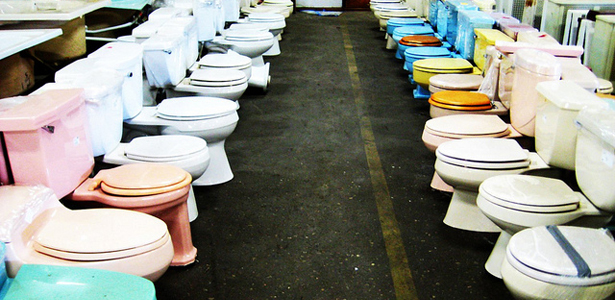Gates Foundation Calls for the Reinvention of the Toilet
Around the world, one million children die each year from diseases that could likely be prevented with better sanitation
Quite effective at their central task of quickly and cleanly removing human waste, toilets have drastically reduced the incidence of death from parasites and bacteria over the last 200 years. But for some 40 percent of the world, a lack of toilets remains a problem.
In response, the Bill and Melinda Gates Foundation announced last week a major new initiative to reinvent the toilet so that they can be easily distributed and used in places without a sewer system. At AfricaSan, a major conference on sanitation and hygiene, Sylvia Mathews Burwell, the Gates Foundation's President of Global Development, said:
The second largest killer of children under five is diarrheal disease, which is responsible for the deaths of more than 1 million children every year, more than AIDS and malaria combined. Most of these deaths could be prevented with proper sanitation, combined with safe drinking water and better hygiene.
Let me repeat that. More than 1 million children die each year for lack of a basic technology which is now more than 200 years old.
As part of this new initiative, The Gates Foundation has awarded eight teams grants totaling $3 million to reinvent the toilet. The goal is a toilet that does not rely on sewage infrastructure, can transform human waste into energy and reusable water, and costs less than five cents per user per day. This is classic Gates Foundation thinking, even down to the key metric: cents per users per day.
Here are a few of the proposals:
- Michael Hoffman from the California Instate of Technology has proposed a solar-powered toilet that will break down water and human waste into hydrogen gas which can be stored in fuel cells for nighttime use.
- Another proposal, from Brian Von Herzen of the Climate Foundation and Reginald Mitchell of Stanford, is for a toilet that turns human waste into biochar that can be used to improve soil. Their design will soon be tested in Nairobi, Kenya.
- Georgios Stafanidis of the Delft University of Technology is developing a toilet that uses microwave technology to transform human waste into electricity.
Like other humanitarian design projects, the new toilets will face adoption challenges, even if they technically succeed. How best to address those issues is hotly debated by people working to bring products to the world's poorest billions.
Image: hankenstein/Flickr.
